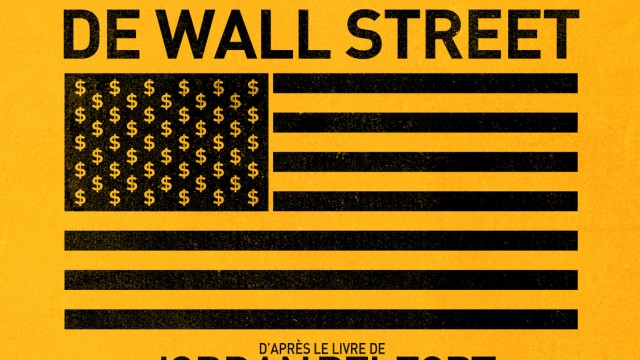Living in the United States, one can very easily forget that there are, in fact, many other countries out there, with their own film industries and movie theatres.
I’ll let you sit down. I know it’s a shock.
Here’s a few observations I made from perusing the worldwide box office section of Box Office Mojo. Naturally, countries with very well-developed film industries, like India or Italy, will have plenty of homegrown hits, but I’m particularly interested in seeing how particular Hollywood films are received overseas.
1. Greece loves them some Ancient Greek history/mythology (even when it’s served up by Hollywood.)
Coming back from a month spent traveling in Greece, I wondered if the apparent obsession the country had with its ancient mythology was genuine, or just a put-on for the tourists and the tourists’ wallets.
I think I can put to rest my concerns now.
The #1 film (so far) of 2014 at the Greek box office? 300: Rise of an Empire. It has more than doubled the gross of the #2 film, Noah.
The #1 film of 2007? The original 300, which grossed a huge (for Greece) $11 million dollars.
The #1 film of 2010? Clash of the Titans.
Back in 2011, the forgotten Henry Cavill-as-Theseus flick Immortals came in at #6 for the year, and outgrossed Thor, Transformers 3, and Breaking Dawn Part 1.
In 2004, Troy came in at #1 for the year, and Oliver Stone’s Alexander made it to #4, even with all the controversy surrounding the homosexual relationship at the film’s center, which sparked a group of conservative Greek lawyers to file a lawsuit against the film.
(Incidentally, the Greek-set Mamma Mia was the top film of 2008, beating out The Dark Knight, amongst others.)
2. France, on the other hand, is not amused by Hollywood, or Tom Hooper, dicing up their beloved national novel.
Les Miserables flopped big time in France and French-speaking countries, and was unable to crack the top 100 releases of its year.
3. Italy has very. . . interesting . . . tastes.
The John Turturro-as-a-male-prostitute comedy Fading Gigolo has grossed more than $6 million in Italy, outstripping, for instance, The LEGO Movie and the new Transformers. The film has, by far, grossed more in Italy than in any other country.
I suspect if John Turturro ran for President of Italy he would win in a landslide.
4. Japan — more Japanese than you’d think.
Despite the stereotype that Japan is obsessed with American pop culture, Hollywood films regularly take a back seat at the Japanese box office to films of Japanese origin, both live-action and animated.
(Unlike in France, Les Miserables was a huge hit here. Also, the Paul W.S. Anderson Three Musketeers was a very big success back in 2011. Explain that one, Japan.)
5. Americans are Puritans.
There. I said it.
Despite all the hoopla over Martin Scorsese’s The Wolf of Wall Street, with its record breaking profanity, its ‘ludes-driven lewdness, its Leonardo-DiCaprio-snorting-cocaine-from-a-woman’s-anus-ness, it still was able to turn in a gross of over $100 million domestic: not bad at all for a film whose plot does not involve guys with capes punching other guys who may or may not wear capes.
Still, the film has topped the German box office for the year of 2014, besting its competition by a fairly large margin, and with a gross of $30 million, it has taken up a far larger slice of the German box office when compared to the American.
Similarly, it has done absolute gangbusters throughout Europe, coming in at the top 5 for the year in Italy, Spain, the U.K., Poland, and Norway, and so far has been the top-grossing film in the Netherlands for 2014.
I think the fact that a film like The Wolf of Wall Street, a three-hour long film nominally about stockbroking, with a clear, provincial identity (it really should be called “The Wolf of Long Island”), is connecting on such a level with international audiences is a testament to two things: firstly, that Leonardo DiCaprio is one of our few truly international stars, someone who can get asses into seats with the sheer power of his name; and secondly, that Scorsese understands the universal and elemental power of visuals better than nearly any filmmaker out there. But I hope you didn’t need me to tell you that.
Perhaps I’m correct, at the hard-R nature of The Wolf of Wall Street, with its unblinking look at absolute excess, drove away puritanical American audiences who frown upon sex and swearing. Maybe Americans are simply Puritans.
But are they Puritans with good taste?
The Ridley Scott-Cormac McCarthy joint The Counselor (a peculiar Southwestern noir that I reviewed here: http://whirlwindfilm.blogspot.com/2013/10/review-counselor.html) was a notorious, critically derided flop in the United States, with a 35% on Rotten Tomatoes, that failed to break even at the American box office. Critics called it tacky, excessive, overwritten, and unintentionally comedic. One writer called it “the worst movie ever made.” It was heavily criticized for its sex scenes between stars Michael Fassbender and Penelope Cruz, its operatic levels of violence, including multiple decapitations, and its now infamous “Cameron Diaz bangs a car” scene.
Nevertheless, it proved to be rather popular, all things considered, in international markets. With a foreign total at $54 million dollars, dwarfing its U.S. gross of $16 million, one can see a disproportionate amount of success it had overseas, compared to, say, Ridley Scott’s last crime film American Gangster, which grossed about an equal amount in the United States as it did in other countries.

